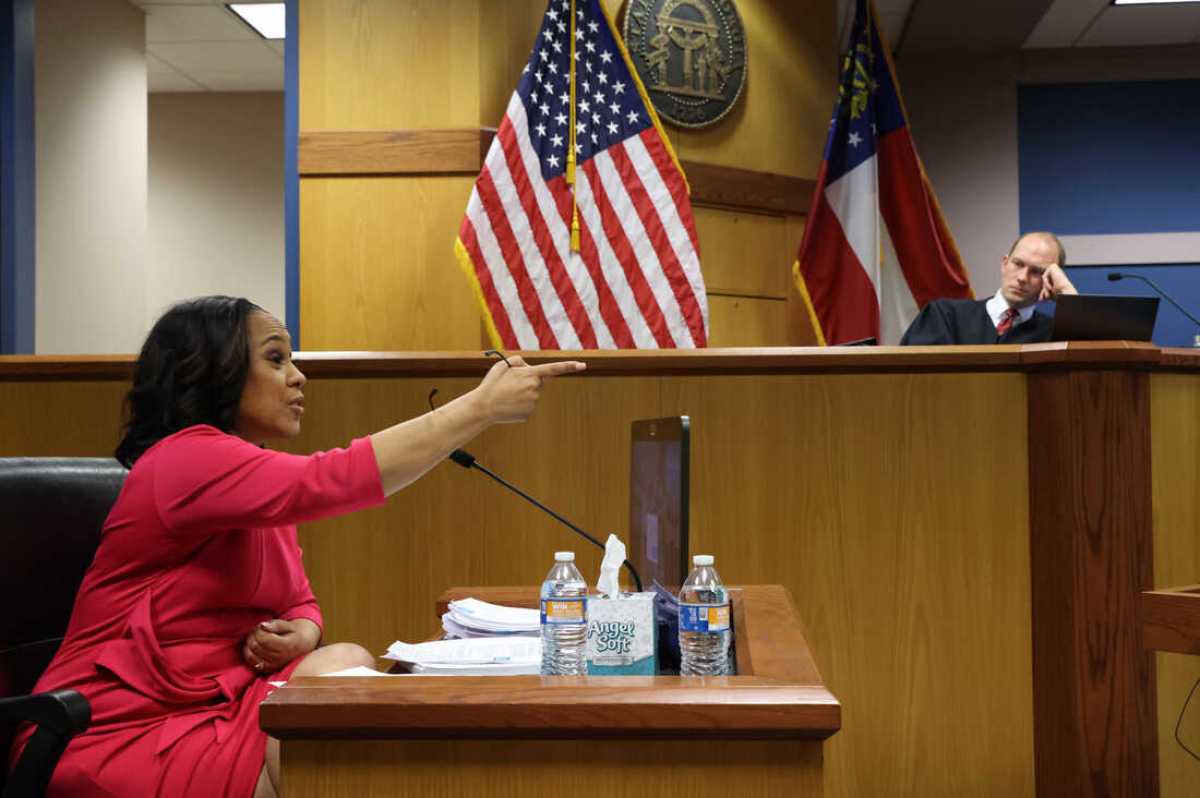Politics
Georgia Judge Rules on Fani Willis Disqualification in Trump Case

A ruling by Fulton Superior Judge Scott McAfee has declared that Fulton County District Attorney Fani Willis can continue leading the Georgia election interference case, but with the condition that special prosecutor Nathan Wade steps aside. The decision strengthens the likelihood that 15 defendants, including former President Donald Trump, will face trial this year for their involvement in trying to overturn the 2020 election outcome.
The ruling came after an extensive 23-page evaluation, where Judge McAfee determined that Willis’ romantic relationship with Nathan Wade, a special prosecutor she enlisted for the case, did not constitute a disqualifying conflict of interest under Georgia law. This pivotal decision marks a significant milestone in the ongoing investigation into efforts to undermine the 2020 election result in Georgia, led by the first Black woman elected as district attorney in Fulton County, Fani Willis, who took office just prior to the U.S. Capitol attack on Jan. 6.
While the ruling is likely to face appeals, it clears the path for prosecutors and the judge to refocus their efforts on advancing the case towards trial. With four defendants already pleading guilty in the matter, a trial date is pending for the remaining defendants, as Judge McAfee navigates through a complex web of more than a dozen defendants and their legal representatives, amidst the packed legal calendar of the former president.
Recognized for her adept courtroom tactics and utilization of Georgia‘s racketeering statute to prosecute intricate criminal activities, Willis guided the case through months of investigation by a special investigative panel, culminating in a comprehensive grand jury indictment of 19 individuals last August.
However, a setback emerged in January when one of the co-defendants, former Trump campaign official Michael Roman, lodged misconduct allegations against Willis, raising the specter of derailing the case. Roman accused Willis of misconduct, suggesting that she was benefiting financially through luxurious vacations financed by Wade’s compensation for the case. Willis and Wade refuted the accusations, asserting that she independently financed her travels.
Despite challenges and allegations, Judge McAfee’s ruling established that there was no evidence demonstrating that financial gain impacted Willis’ decision to prosecute the case. McAfee deemed that the accusations failed to meet the threshold required to prove an actual conflict of interest.
McAfee’s ruling outlined that either Willis must step aside along with her office, allowing the case to be reassigned to the Prosecuting Attorneys’ Council, or special prosecutor Nathan Wade must withdraw from the case, alleviating concerns of potential distractions or compromises to the case’s merit.












